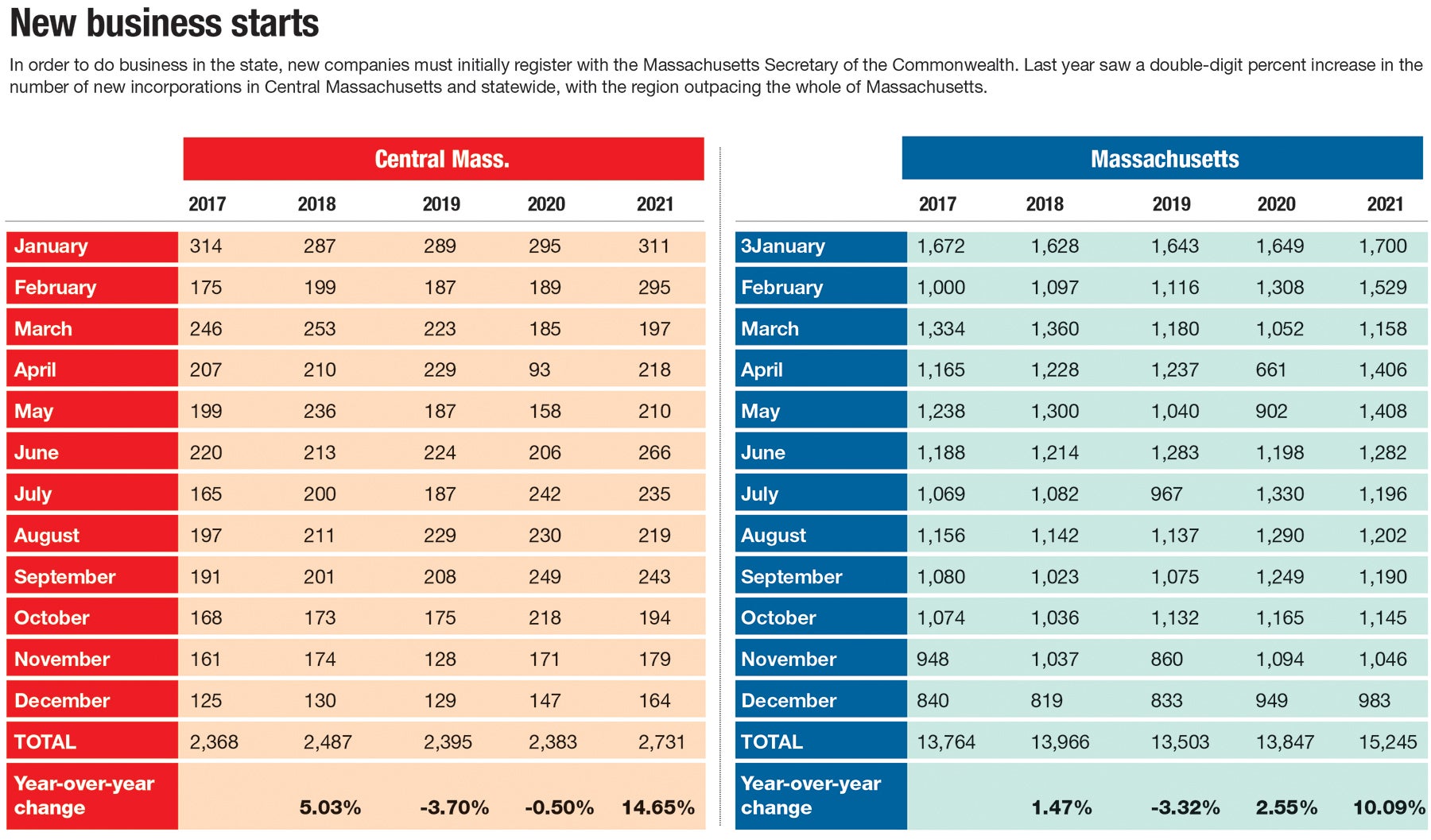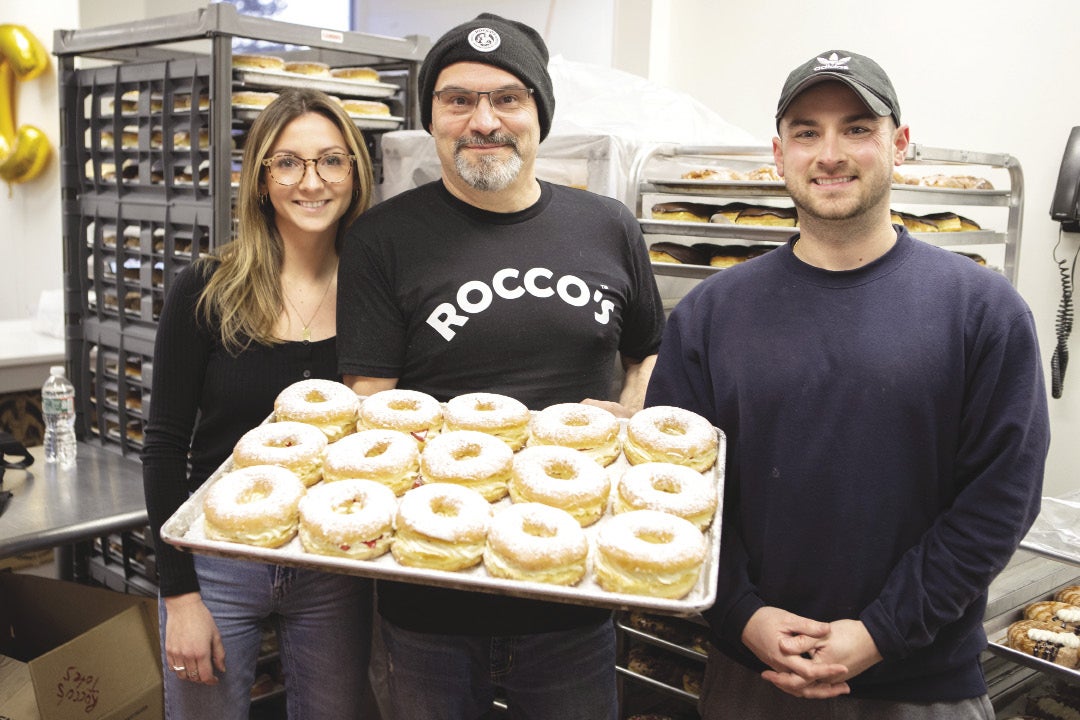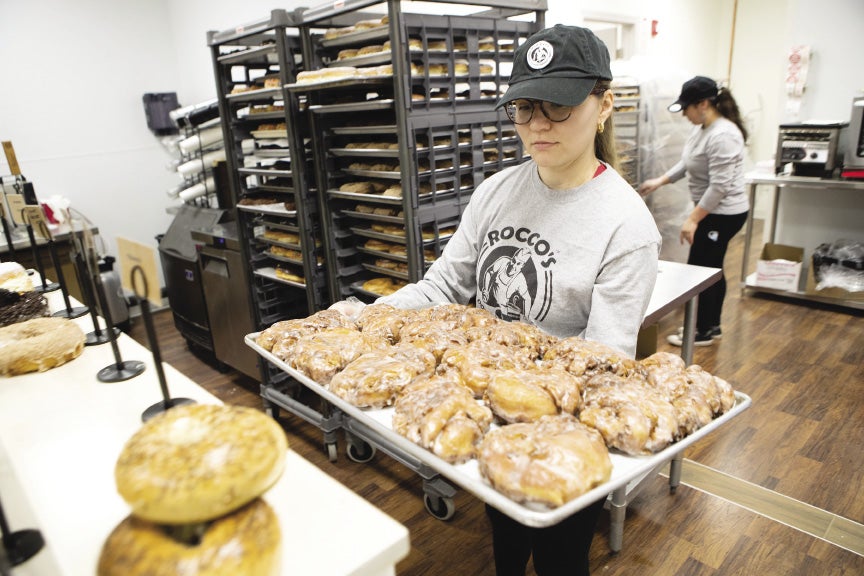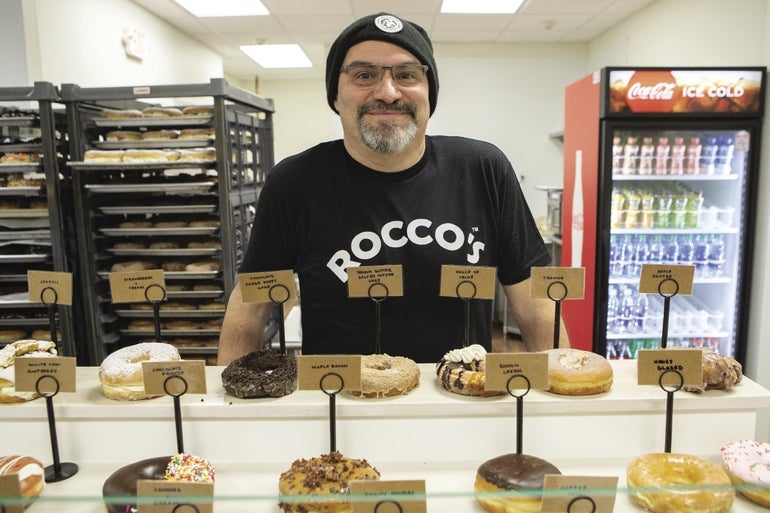The Great Resignation is plaguing employers large and small, and one hotly debated question has hiring managers asking where, exactly, all the quitting employees are moving to.
Get Instant Access to This Article
Subscribe to Worcester Business Journal and get immediate access to all of our subscriber-only content and much more.
- Critical Central Massachusetts business news updated daily.
- Immediate access to all subscriber-only content on our website.
- Bi-weekly print or digital editions of our award-winning publication.
- Special bonus issues like the WBJ Book of Lists.
- Exclusive ticket prize draws for our in-person events.
Click here to purchase a paywall bypass link for this article.
The Great Resignation is plaguing employers large and small, and one hotly debated question has hiring managers asking where, exactly, all the quitting employees are moving to.
In Central Massachusetts, it turns out, a lot of them are starting companies of their own.
The number of Central Massachusetts startups grew 15% in 2021, compared to a 0.5% decrease in 2020, according to a WBJ analysis of businesses incorporation filings at the Massachusetts Secretary of the Commonwealth.
Entrepreneurialism in Central Massachusetts outpaced the state as a whole, which saw a drastic increase of its own with a 10% rise in startups last year, compared to a 3% increase in 2020, according to the WBJ study of the Secretary of the Commonwealth data.
“Anecdotally, from our perspective, we’ve seen the trend which has been pretty evident across the country, that people have been leaving their old jobs to find new jobs or to start up new businesses, and we’ve definitely seen a lot of demand for entrepreneurial resources, especially over the last year,” said David Sullivan, economic development and business recruitment associate at the Worcester Regional Chamber of Commerce.
While some workers may be bouncing from company to company, looking for better pay, benefits, and flexibility, the data is clear: A lot of folks are opting to become their own bosses, especially in and around Worcester.
Central Massachusetts is mirroring the national trend, too, as the coronavirus pandemic forced people to leave their jobs and others to reconsider the value of their professional time. Last year, 5.4 million new business applications were filed, up from the record 4.4 million in 2020, according to the U.S. Census Bureau.

Courageousness & challenges
This entrepreneurial attitude is true even for people who retain their current jobs, as is the case for Stephanie Ramey, president of the Worcester Railers Hockey Club. While she remains in that position, 2021 was the year she stepped out on her own, launching The O Shop on Richmond Avenue in Worcester.
The lingerie store opened in July.
Ramey had always wanted to start her own venture, especially after working closely with the region’s small business owners in her previous job as executive director of the tourism agency Discover Central Massachusetts.
“I always admired their courageousness and the challenges they faced,” Ramey said.
She describes herself as someone with an intense entrepreneurial spirit. But even with that spirit, she’s still a person with a separate career and a lot of responsibilities. The pandemic provided some unexpected space to more fully digest the idea of starting a company. She doesn’t know if she’d have had the bandwidth or internal drive, otherwise.
“There was more time for reflection and, maybe, just to get inspired,” she said.
She floated the idea by friends and colleagues for several months. When she bought the domain name for the store, and the P.O. box, though, the proposed business suddenly felt tangible.
And despite economic uncertainty brought on by the pandemic, business is doing well. Ramey credited this, in part, with consumer desire for one-on-one, personalized human interactions – precisely the kind of thing limited by needs and rules around social distancing.
“We are hungry for it and will probably continue to be thirsty or hungry for human interaction after this,” she said.
Finding happiness
It’s not all business startups, though. For some, it’s been a year of business expansions. Rocco’s Doughnut Co. is one such example, opening its third store and first Worcester shop on Feb. 9, on West Boylston Street.
Owned by Joseph Astrella, who said his father was one of the original Dunkin’ franchise owners in the 1950s, he opted to grow his business after originally putting 2020 plans for a Worcester shop on hold because of the pandemic.
After two years of adapting operations in Millbury and Westborough, including maturing the Rocco’s online ordering system and continuing to serve sometimes as many as 350 customers in a single day, the timing fell into place.

For those familiar with the doughnut shop’s history, this might not come as a surprise. When it comes to taking the risky plunge into small business ownership, Astrella is no stranger. When he opened the first Rocco’s at its flagship location in Millbury in March 2018, he’d just left his job in the corporate world, where he’d worked for more than two decades and was, at the time, commuting two hours a day for a career he said he just didn’t enjoy. His kids were fully grown, and it was time, he decided, to try something new.
“If you hate what you do, don’t waste your time,” he said. “Do something else.”
He’s full of similar plucky advice for would-be entrepreneurs, believing the only bad business idea is the one a person chooses not to pursue.
“Because what’s the worst thing you could do?” Astrella asked. “You could fail.”

This kind of restlessness, as well as belief in personal perseverance, seems to be playing a not insignificant role in workers’ decisions to launch small businesses. Although difficult to quantify, uncertainty around the pandemic took a toll not just on hiring managers and bosses, but on employees, as well. Many have found themselves arguing for increased benefits, wages, or general workplace flexibility. And one place to get that, for many, is in a company of their own.

